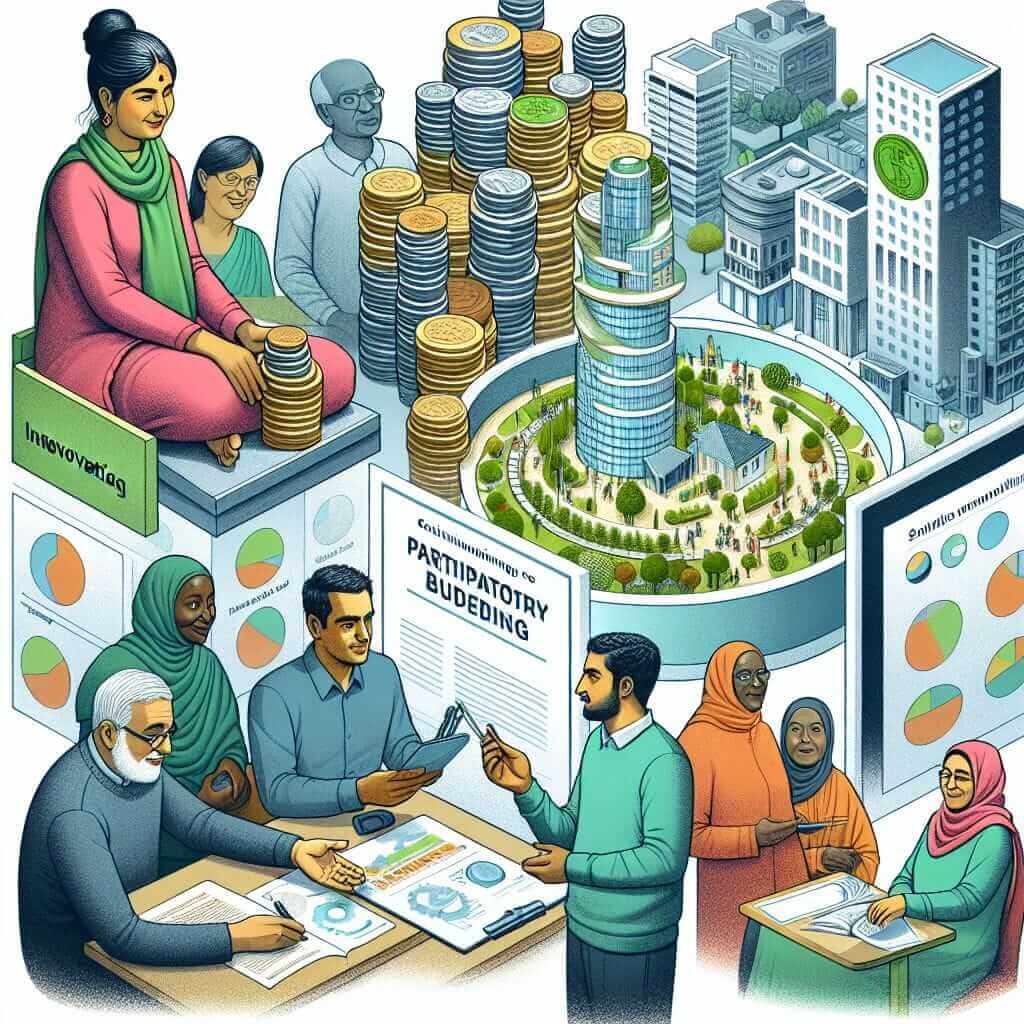The IELTS Reading test evaluates several skills, such as reading speed, comprehension, and the ability to identify and analyze information. The topic of “The Role of Social Innovation in Economic Development” is particularly relevant in today’s fast-evolving global economy and has appeared in various reading passages over the years. Given its significance, candidates can expect such content to reappear due to its contemporary relevance.
By delving into this topic, you’ll not only prepare for a potential reading passage but also gain insights into how social innovation fosters economic progression, which is a highly valuable academic and practical knowledge.
Reading Passage
The Role of Social Innovation in Economic Development
Social innovation refers to the process of developing and implementing novel solutions to complex social issues. This pivotal approach often necessitates the collaboration of various sectors, including government bodies, private enterprises, and non-profits. One prime example of social innovation is micro-financing, which provides financial services to individuals and small businesses who lack access to conventional banking. This model has empowered many to improve their economic conditions, particularly in developing countries.
Another example is sustainable urban planning. By designing cities that are environmentally friendly and energy-efficient, we can significantly enhance the quality of life and economic prospects. Innovative housing projects, waste management systems, and renewable energy sources collectively contribute to the economic upliftment of communities.
Such innovations are not just confined to new technologies. They also encompass changes in governance structures, community-driven development projects, and policies that enable greater equity and inclusiveness. For example, participatory budgeting allows citizens to contribute to the decision-making process on public expenditure, ensuring that the allocation of resources reflects the community’s needs.
Importantly, social innovations often have a ripple effect. Once a novel solution to a social problem is proven effective, it is frequently adapted and scaled in other regions, thereby maximizing its economic impact. Keywords like scalability, community engagement, and systemic change are essential when discussing the significance of social innovation.
Governments and organizations around the world are increasingly recognizing the vital role that social innovation plays in solving economic problems. From educational reforms to healthcare improvements, social innovation stands as a critical pillar in achieving sustainable economic development. It is an interdisciplinary domain that transcends traditional boundaries and demands integrated approaches for creating inclusive growth.

Questions
Multiple Choice Questions
-
What is the primary role of social innovation in economic development?
- A. To provide financial services to large corporations
- B. To develop novel solutions to complex social issues
- C. To promote conventional banking systems
- D. To enhance governmental control
-
Which of the following is an example of social innovation?
- A. Micro-financing
- B. Conventional banking
- C. Corporate mergers
- D. High-frequency trading
-
How does participatory budgeting impact communities?
- A. It excludes citizens from public expenditure decisions
- B. It ensures resource allocation reflects community needs
- C. It increases governmental expenses
- D. It limits innovation in public services
True/False/Not Given
- Social innovations are confined to new technologies.
- Sustainable urban planning improves both quality of life and economic prospects.
- Social innovations seldom result in a ripple effect beyond their original implementation region.
Short-answer Questions
- What does micro-financing provide to individuals and small businesses?
- Give one example of social innovation that enhances economic development apart from micro-financing.
- Why are keywords like scalability and systemic change essential in the context of social innovation?
Answer Key
Multiple Choice Questions
- B. To develop novel solutions to complex social issues
- A. Micro-financing
- B. It ensures resource allocation reflects community needs
True/False/Not Given
- False. Social innovations are not confined to new technologies but also include governance structure changes and other approaches.
- True. Sustainable urban planning can significantly enhance quality of life and economic prospects.
- False. Social innovations often have a ripple effect and are adapted in other regions.
Short-answer Questions
- Micro-financing provides financial services to individuals and small businesses who lack access to conventional banking.
- Sustainable urban planning is one example of social innovation that enhances economic development by improving living conditions and economic opportunities.
- Keywords like scalability and systemic change are essential because they highlight the broader impact and adaptability of social innovations for maximizing economic benefit.
Lessons Learned
Common Mistakes
- Overlooking Complex Phrases: Students often miss out on understanding complex phrases. Always break down sentences for better comprehension.
- Ignoring Keywords: Not paying attention to keywords that signal the purpose or main idea of a passage.
- Speeding Without Comprehension: Reading too quickly can lead to superficial understanding. Balance speed with comprehension.
Vocabulary
- Micro-financing (noun): Providing financial services to underserved individuals or groups.
- Empower (verb): To give power or authority.
- Equity (noun): Fairness and impartiality.
- Interdisciplinary (adjective): Involving two or more academic, scientific, or artistic disciplines.
Grammar Focus
- Complex Sentences: Sentences with multiple clauses using conjunctions like “which,” “that,” “because,” “however.”
- Example: “Micro-financing, which provides financial services to individuals, has empowered many to improve their economic conditions.”
- Modal Verbs: Words like “can,” “might,” “should” used to express ability, possibility, permission or obligation.
- Example: “We can significantly enhance the quality of life through sustainable urban planning.”
Advice
To excel in the IELTS Reading section, practice skimming and scanning. Skim to grasp the main idea and scan for specific details. Time management is crucial—practice under timed conditions to improve both speed and accuracy. Expand your vocabulary and understand different grammatical structures to better tackle complex texts. Regular practice with diverse reading materials will also enhance your comprehension skills.
Explore our related articles for a deeper understanding of economic principles and strategies:
- Role of Social Enterprises in Economic Development
- Economic Effects of Digital Marketing
- Role of Entrepreneurship in Economic Development
- Role of Culture in Economic Growth
- Role of Education in Economic Development
Incorporating these strategies and insights, you will be well-prepared for the Reading section of the IELTS exam.